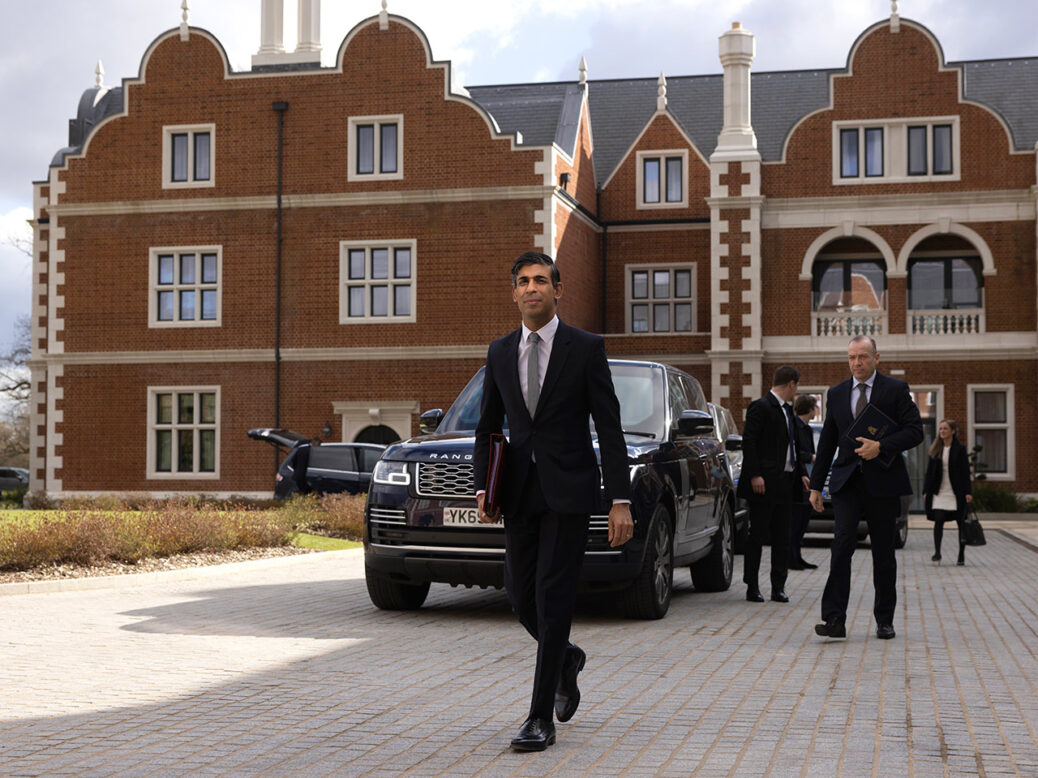
Rishi Sunak has faced down Tory Brexiteers as new trading rules for Northern Ireland were voted through the Commons without the government having to rely on Labour votes.
The Windsor Framework, which reduces checks on goods going from Britain to Northern Ireland, was passed by 515 votes to just 29. Despite the former Conservative leaders Boris Johnson, Liz Truss and Iain Duncan Smith voting against it a major Tory rebellion did not materialise. The Prime Minister has successfully navigated what could have been an explosive conflict with his backbenchers and emerges in a stronger position.
Today’s vote was on a small portion of the agreement: the “Stormont brake”, which would give the Northern Ireland Assembly a chance to block EU legislation that would affect the province. However, as Jeffrey Donaldson, leader of the DUP, pointed out, this was more of an “indicative vote” for the entire deal.
How to tackle recurring problems with post-Brexit trading rules in Northern Ireland has been one of the trickiest questions of Sunak’ has faced in his premiership, but bringing in key members of the European Research Group (ERG) of Brexiteer Tory MPs into his Cabinet seems to have paid off. This has included Chris Heaton-Harris, the Northern Ireland Secretary, and Steve Baker, a Northern Ireland minister, who has stayed loyal to Sunak despite garnering a reputation for being the Brexit “hard man” during Theresa May’s time as prime minister. It was reported earlier today that Baker has been ejected from an ERG Whatsapp group.
Many within the ERG remain sceptical about the deal. Mark Francois, Jon Redwood and Bill Cash – members of the group and serial rebels – refused to vote for the agreement. But overall, the vote today shows that the great majority of Tory MPs have moved on from Brexit and are prepared to get behind Sunak.
The Prime Minister will be cheered by the level of support on such a thorny issue given that MPs could soon be expected to vote on Johnson’s political future. This afternoon the Commons’ Privileges Committee is taking evidence from the former prime minister as part of its investigation into whether he misled MPs over partygate. Should the committee issue a sanction, such as a suspension from parliament, the Commons will be asked to vote on it.
With Northern Ireland, the focus now will turn to whether the DUP will be prepared to return to governing at Stormont and get power-sharing back up and running – there has been no devolved government since the last administration collapsed in February 2022. Although the DUP voted against the Windsor Framework, Donaldson told the Commons that the deal represented progress and that his party would continue to work with the government to “secure clarification, reworking and change”.
[See also: The New Statesman view: the rewards of diplomacy]






